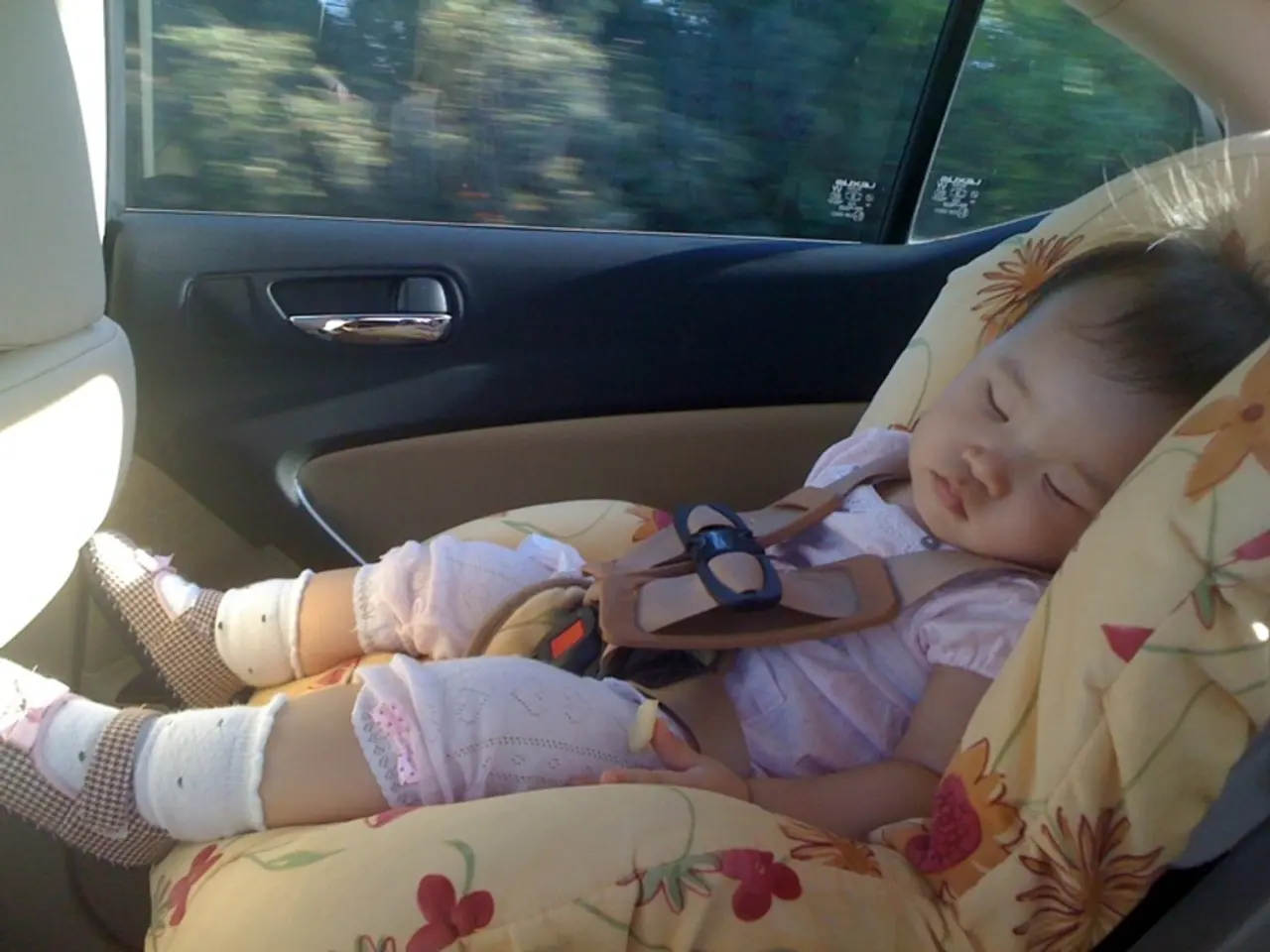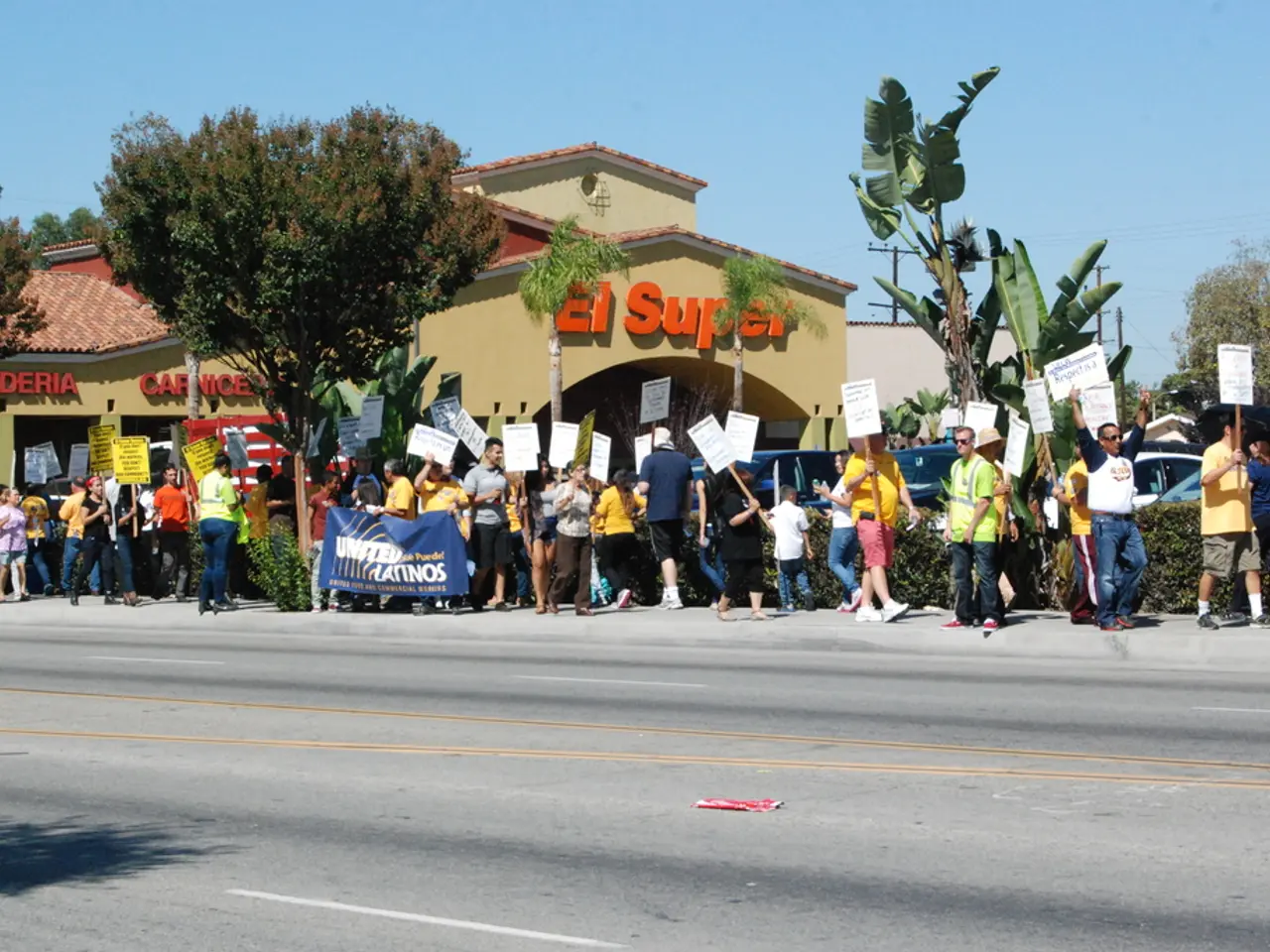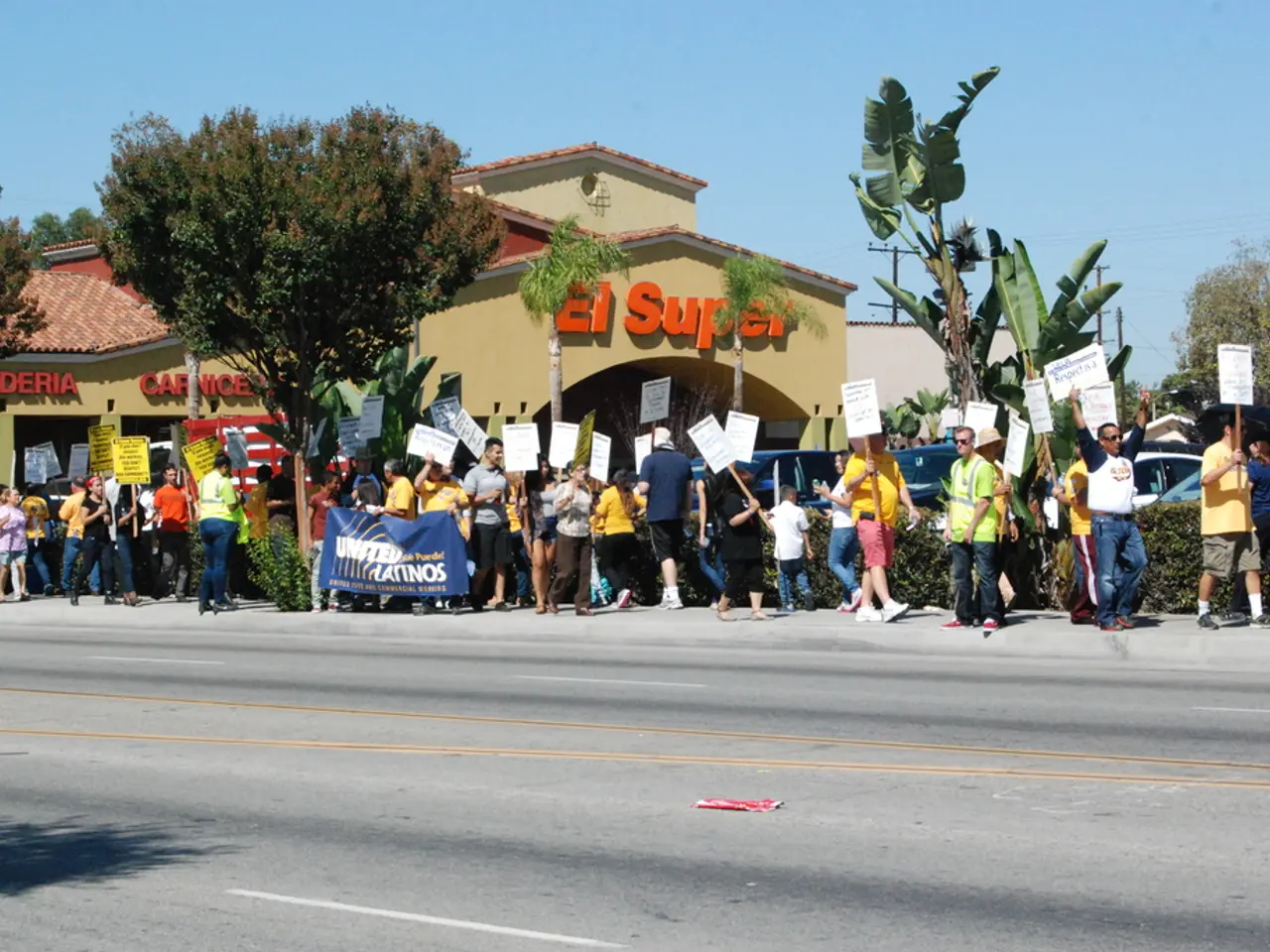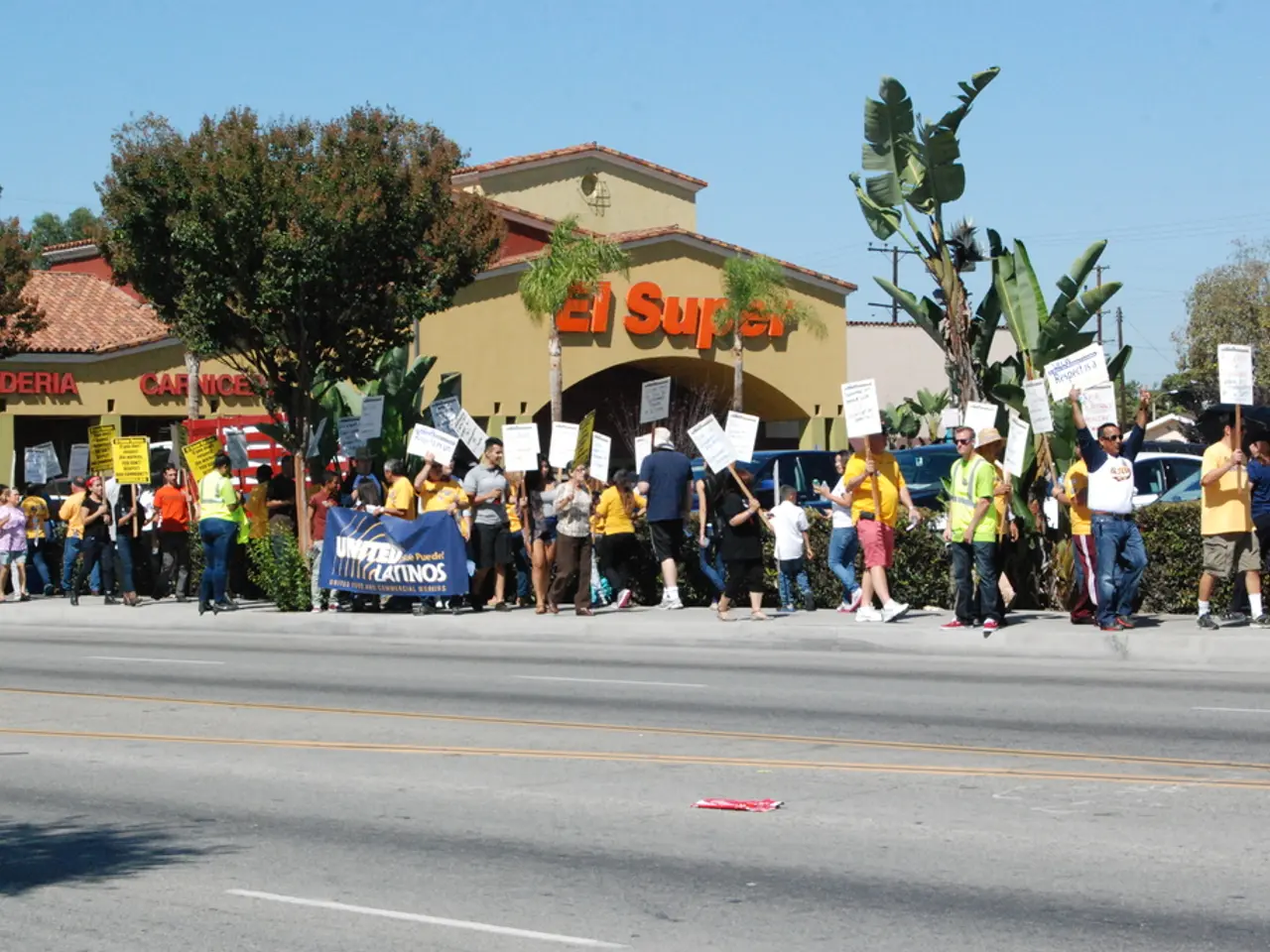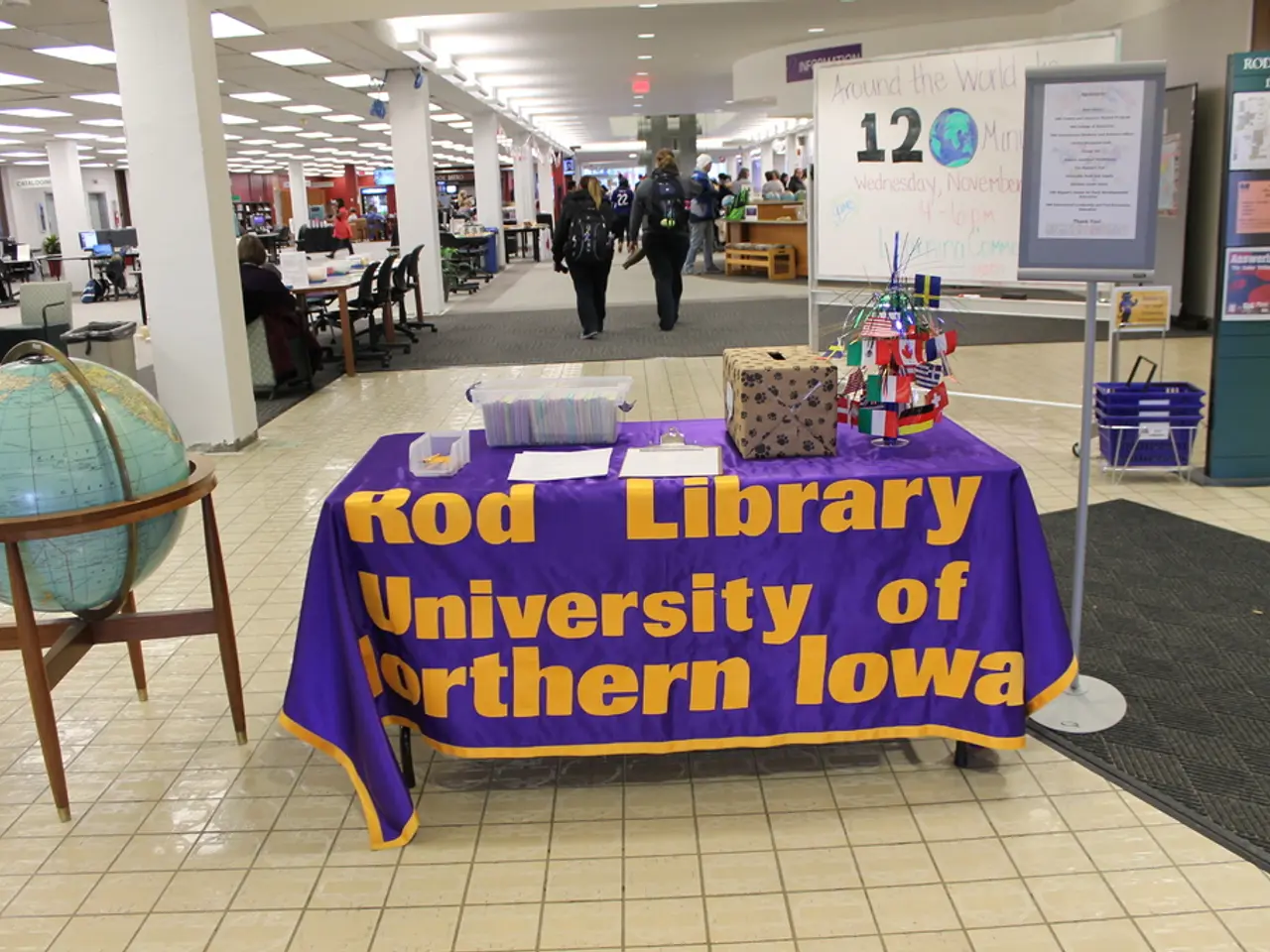Almaty's Election Day Welcomes 74 Newborns at Birth Centers
In an unusual turn of events, two regions in Kazakhstan, Almaty and Turkestan, experienced a surge in births on election day. In Almaty, a remarkable 74 babies were welcomed into the world, while the Turkestan region saw 135 new arrivals, more than double the usual number.
The perinatal center in Almaty became a unique polling station, allowing expectant and delivering mothers to exercise their right to vote from as early as 07:00. A total of 83 patients took advantage of this opportunity, ensuring their voices were heard in the democratic process.
In the heart of polling station No. 397, Altyna Dautova, the chief medical nurse and chairperson, shared that mothers voted based on their feelings. Meanwhile, in the Turkestan region, temporary care was provided for the newborns while their mothers cast their votes. A dedicated nurse was responsible for looking after the babies during the voting process.
Aydana Suleyeva, a mother from the Turkestan region, was overwhelmed with emotions as she welcomed her long-awaited daughter on election day. Despite being only a few days old, baby Aydana was able to participate in the elections, symbolising the resilience and determination of new Kazakhstani families.
The increased birth rate in these regions raises questions about the factors influencing this phenomenon. Social and economic conditions, cultural and traditional practices, and healthcare access are all potential contributors. Economic growth and social stability could have made people feel more secure in having children, while cultural traditions might have influenced birth timing for symbolic reasons. Access to quality prenatal care and safe birthing conditions could also encourage more births by reducing associated risks.
These record-breaking births could lead to demographic shifts, altering the age structure of the population over time. They could also have economic implications, with increased demands on public services such as education and healthcare potentially straining resources unless adequately planned for. Socially and culturally, the event could reinforce trends related to family values and community dynamics.
Aydana Nurash and Murat Tayzhanov, correspondents from Almaty.tv, were present during the elections, capturing the unique events unfolding at the polling stations and perinatal centers. Aydana Nurash even visited the newborns, providing a heartwarming glimpse into the lives of these new families.
As we look forward, it is essential to consider the broader factors influencing such events and the potential implications they may have on our society. Understanding these factors can help frame discussions around these remarkable occurrences and guide us towards a more informed future.
The surge in births on election day in Almaty and Turkestan has brought politics and general-news together, as pregnant and delivering mothers were given the opportunity to vote from their perinatal center in Almaty and temporary care was provided for newborns in Turkestan, allowing mothers to cast their votes. The unique circumstances surrounding these record-breaking births have raised questions about social, economic, cultural, and traditional factors influencing this phenomenon, as well as potential implications on the age structure of the population, public services, family values, and community dynamics.
